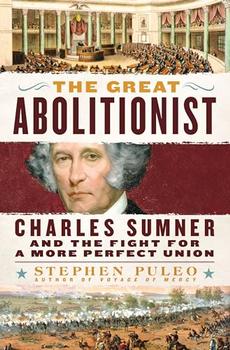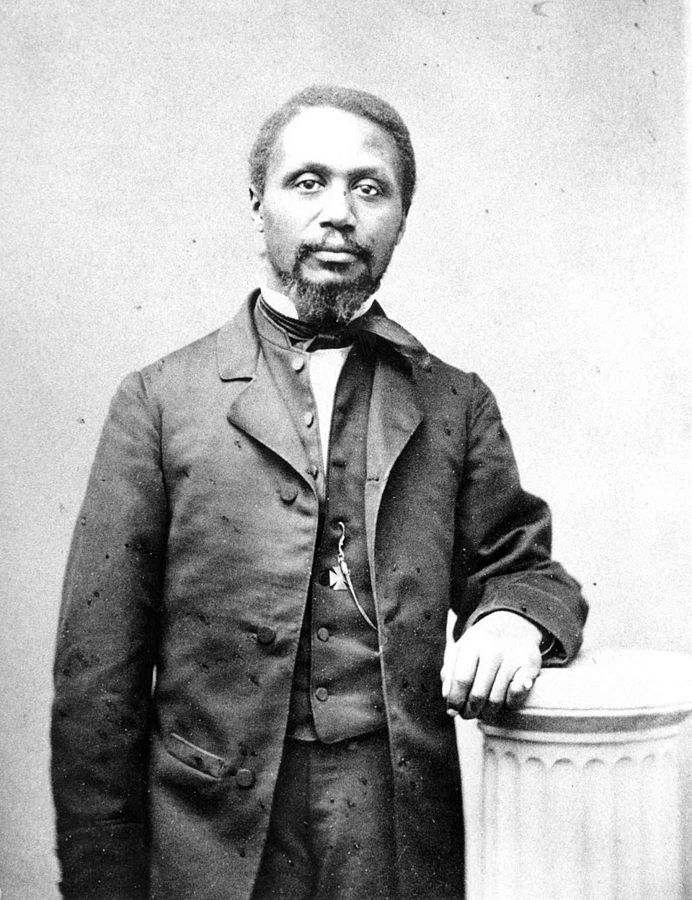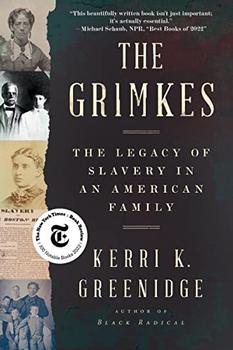Summary | Excerpt | Reviews | Beyond the book | Read-Alikes | Genres & Themes | Author Bio

Charles Sumner and the Fight for a More Perfect Union
by Stephen PuleoThe groundbreaking biography of a forgotten civil rights hero.
In the tempestuous mid-19th century, as slavery consumed Congressional debate and America careened toward civil war and split apart–when the very future of the nation hung in the balance–Charles Sumner's voice rang strongest, bravest, and most unwavering. Where others preached compromise and moderation, he denounced slavery's evils to all who would listen and demanded that it be wiped out of existence. More than any other person of his era, he blazed the trail on the country's long, uneven, and ongoing journey toward realizing its full promise to become a more perfect union.
Before and during the Civil War, at great personal sacrifice, Sumner was the conscience of the North and the most influential politician fighting for abolition. Throughout Reconstruction, no one championed the rights of emancipated people more than he did. Through the force of his words and his will, he moved America toward the twin goals of abolitionism and equal rights, which he fought for literally until the day he died. He laid the cornerstone arguments that civil rights advocates would build upon over the next century as the country strove to achieve equality among the races.
The Great Abolitionist is the first major biography of Charles Sumner to be published in over 50 years. Acclaimed historian Stephen Puleo relates the story of one of the most influential non-presidents in American history with evocative and accessible prose, transporting readers back to an era when our leaders exhibited true courage and authenticity in the face of unprecedented challenges.
CHAPTER 1 "WE ARE BECOMING ABOLITIONISTS … FAST"
Charles Sumner was saddened, though not overly sympathetic, when he saw his first slaves in 1834 at the age of twenty-three.
Fresh out of Harvard Law School, Sumner left Boston by stagecoach at 3:30 A.M. on February 17 for his first trip to Washington, D.C. His mentors, Harvard dean and associate Supreme Court justice Joseph Story and Professor Simon Greenleaf, had suggested the trip to the nation's capital, believing that for Sumner to excel at the law, he had to understand the way the country's politics worked and gain a broad acquaintance with judges and government leaders. Sumner also welcomed the trip as an opportunity to spread his wings after years of painstaking classroom study and cloying and overbearing supervision from his demanding father.
The long journey, portions of which were made by steamboat and railway (Sumner's first train ride), was tiring but exhilarating.
Departure night was so dark that Sumner, riding up front ...
Despite being an eloquent writer, Charles Sumner didn't craft any legislation. What separated him from his colleagues was his moral compass, the willingness to fight for African American equality despite the cost, despite being despised by both Southerners and Northerners. Stephen Puleo's biography of Sumner has a lot of educational passages, as it tutors its readers in the Cotton Whigs, the Conscience Whigs, the Free Soilers, the Kansas-Nebraska Act. The abolitionist movement is granted a close-up examination often missed by history texts, enriching our understanding of the high emotions in pre-Civil War Northern communities. What becomes clear as the chapters move from one Senate crisis to another is how influential Charles Sumner was simply by leading with virtue and discipline. He impacted writers such as Nathaniel Hawthorne, Ralph Waldo Emerson, and Henry David Thoreau...continued
Full Review
 (1065 words)
(1065 words)
(Reviewed by Valerie Morales).
 Dennis Lehane, author of Small Mercies
Stephen Puleo's masterful account of Charles Sumner, a prickly, conflicted paradox of an American giant, is told with verve and gusto. It's a vibrant, important story whose echoes still reverberate in our current day. A wonderful read.
Dennis Lehane, author of Small Mercies
Stephen Puleo's masterful account of Charles Sumner, a prickly, conflicted paradox of an American giant, is told with verve and gusto. It's a vibrant, important story whose echoes still reverberate in our current day. A wonderful read. Eric Jay Dolin, author of Left for Dead and Black Flags, Blue Waters
Charles Sumner was a principled man of unshakable conviction, who fought the good, noble, and heroic fight against slavery, and he deserves to be remembered as a great statesman and one of the foremost champions of civil rights. He also deserves a compelling and wonderfully-written biography, which is what Stephen Puleo has provided.
Eric Jay Dolin, author of Left for Dead and Black Flags, Blue Waters
Charles Sumner was a principled man of unshakable conviction, who fought the good, noble, and heroic fight against slavery, and he deserves to be remembered as a great statesman and one of the foremost champions of civil rights. He also deserves a compelling and wonderfully-written biography, which is what Stephen Puleo has provided. William Martin, New York Times bestselling author of The Lincoln Letter and December '41
A superb new biography. In prose that is perceptive and propulsive, in scenes that are powerful and dramatic, Puleo brings Sumner vividly to life. Once more, he delivers a book that will captivate the general reader and reward the serious historian, too.
William Martin, New York Times bestselling author of The Lincoln Letter and December '41
A superb new biography. In prose that is perceptive and propulsive, in scenes that are powerful and dramatic, Puleo brings Sumner vividly to life. Once more, he delivers a book that will captivate the general reader and reward the serious historian, too. At the age of four, when Sarah Roberts was ready for school, her father Benjamin was insistent that she have the best education. It was the late 1840s in Boston. Benjamin Roberts had been traumatized by educational segregation. It incubated shame within him as a young black boy to attend inferior schools with inadequate resources. He didn't want that for Sarah.
At the age of four, when Sarah Roberts was ready for school, her father Benjamin was insistent that she have the best education. It was the late 1840s in Boston. Benjamin Roberts had been traumatized by educational segregation. It incubated shame within him as a young black boy to attend inferior schools with inadequate resources. He didn't want that for Sarah.
The first school that Roberts approached was the Phillips School. It was close to their Andover Street home. But Sarah was instantly denied because she didn't have a ticket of entrance. Tickets of entrance were only given to white students. Roberts was only allowed to enroll Sarah in the Smith School for colored children, which was in a black neighborhood. Black parents who ...

If you liked The Great Abolitionist, try these:

by Kellie Carter Jackson
Published 2024
A radical reframing of the past and present of Black resistance—both nonviolent and violent—to white supremacy.

by Kerri K. Greenidge
Published 2024
A stunning counternarrative of the legendary abolitionist Grimke sisters that finally reclaims the forgotten Black members of their family.




A library is a temple unabridged with priceless treasure...
Click Here to find out who said this, as well as discovering other famous literary quotes!